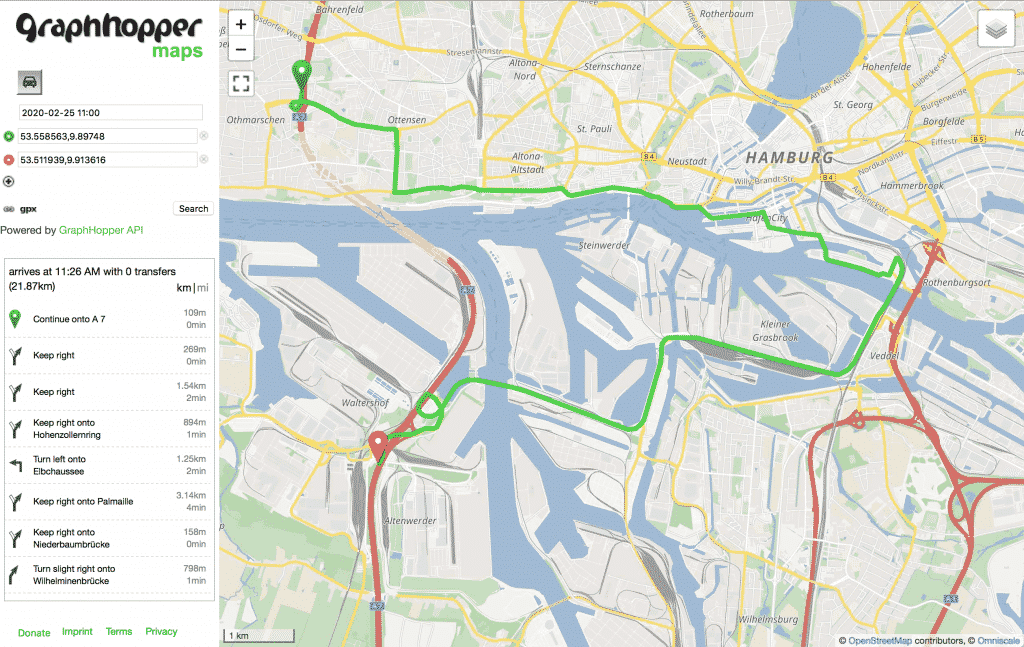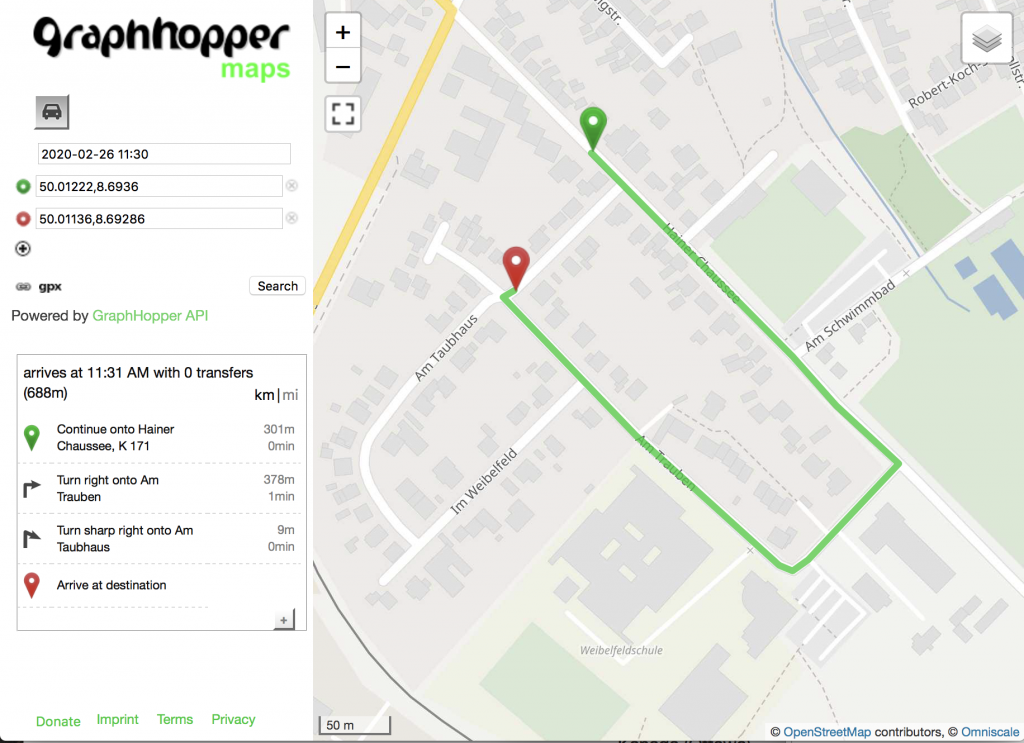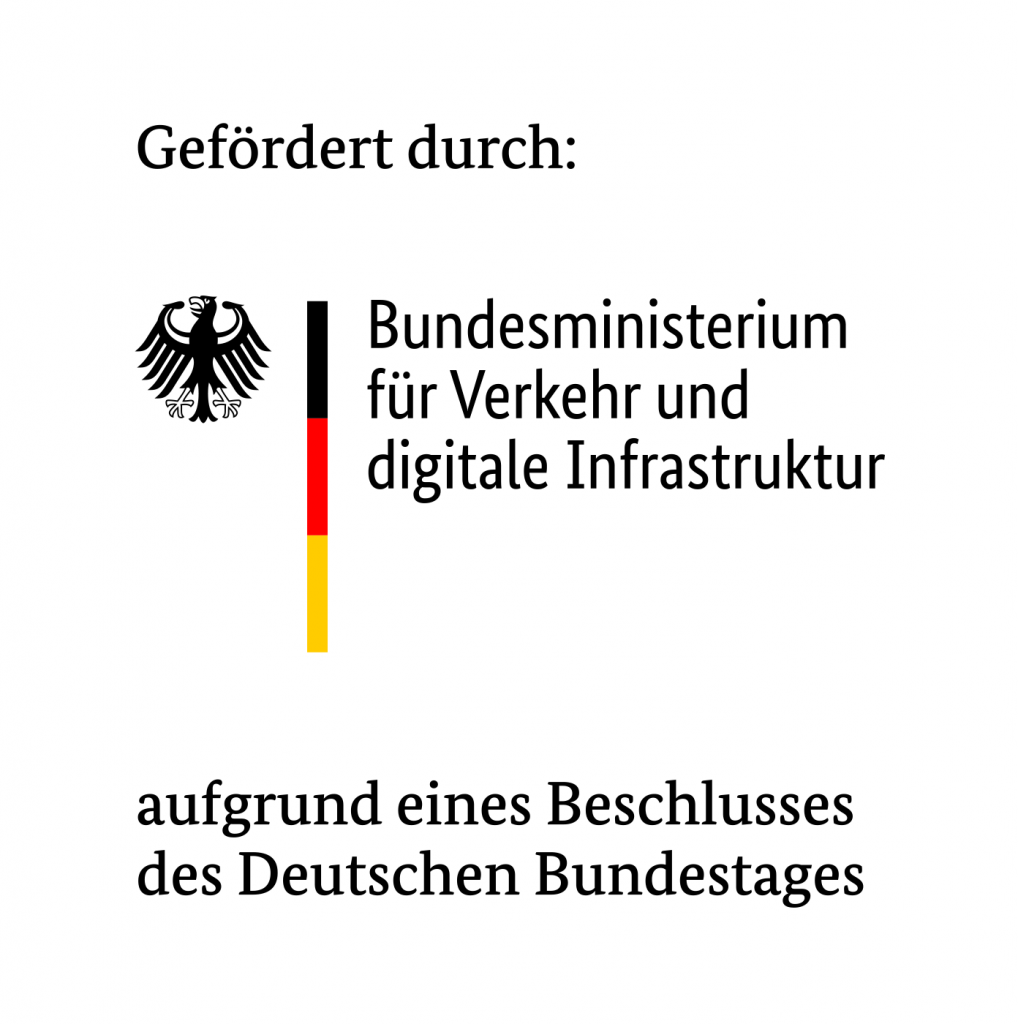Don’t hesitate to contact us:
Forum: discuss.graphhopper.com
Email: support@graphhopper.com
Over the past year, we’ve been investigating time-dependent routing, in particular time-dependent access restrictions and time-dependent turn restrictions. We’ve been working with the University of Heidelberg, and the work has been supported by a grant from the Federal Ministry of Transport and Digital Infrastructure.
The recommended route from the northern part of the city of Hamburg to the southern part is usually through the Elbe tunnel, which is part of the federal freeway route (Autobahn) A7. However, for hazardous goods vehicles, this route is closed for parts of the day. If the desired departure time is known to the routing engine, this route should not be recommended. The next best alternative should be recommended.

Note that whether or not the tunnel can be part of a recommended route cannot simply be decided by looking at the intended departure time. What matters is the time the driver will, or would, arrive at the restricted road segment. Typical planned trips for heavy-goods vehicles can be long, so this does make a practical difference.
Next, we wanted to look into time-dependent turn restrictions. Those are far less common. The difference they make to optimal routes is much more local: A driver who encounters an unexpected turn restriction will typically know where to drive instead, and the detour will be short. Still, we can now give correct instructions right away.

Time-dependent routing requires a routing profile prepared for flexible mode, which means query times will be longer than what you are used to from speed mode. The code we wrote for this project will be merged into our open-source codebase. We are considering ways to offer this functionality on our hosted API. We’ll keep you posted.

